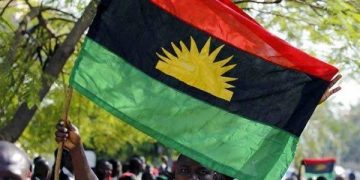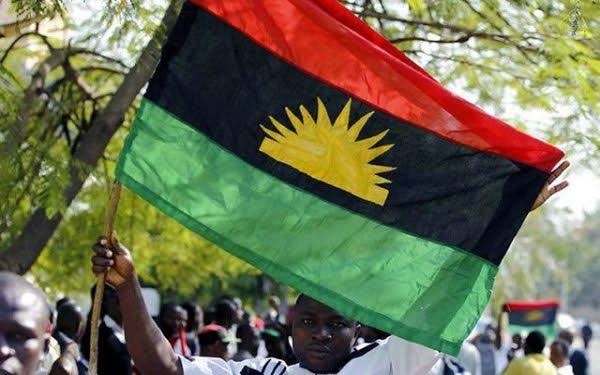By John Ikani
The Government of the United Kingdom has made a U-turn on its treatment of members of the Indigenous People of Biafra (IPOB), recognising Nigeria’s classification of the group as a terrorist organisation.
IPOB is a separatist organization in Nigeria. Its main aim is to restore an independent state of Biafra in the Old Eastern Region of Nigeria, comprising mainly today’s South-East and South-South Regions of Nigeria, and also parts of the Middle Belt states of Nigeria such as Benue and Kogi states.
The group was founded in 2012 by Nnamdi Kanu, a British Nigerian political activist known for his advocacy of the contemporary Biafran independence movement.
It was declared as a terrorist organization by the Nigerian Government in 2017 under the Nigerian Terrorism Act.
In April 2021 that the UK was planning to grant asylum to persecuted members of the separatist group, as part of its refugee policy published at the time.
But in a May 2022 update of its asylum policy, the UK Government excluded members of the group from seeking refuge in England.
UK’s U-turn followed a series of atrocities committed by the group.
Among the atrocities listed by UK Visas and Immigration (UKVI) was the invasion of an All Progressives Congress (APC) meeting in Enugu state where a party chieftain was killed.
Another was the attack on an Imo Police Station where an officer was killed.
Also listed were the killing of Anambra residents during enforcement of ”sit-at-home” order; killing of some policemen en route to Anambra International Airport.
“IPOB is proscribed as a terrorist group by the Nigerian government, and members of the group and its paramilitary wing – the Eastern Security Network (created in December 2020) – have reportedly committed human rights violations in Nigeria,” UKVI said in its latest policy notes.
“MASSOB has been banned, but is not a proscribed terrorist group in Nigeria. It too has reportedly been involved in violent clashes with the authorities.
“If a person has been involved with IPOB (and/or an affiliated group), MASSOB or any other ‘Biafran’ group that incites or uses violence to achieve its aims, decision makers must consider whether one (or more) of the exclusion clauses under the Refugee Convention is applicable.
“Persons who commit human rights violations must not be granted asylum.”
The policy directed that decision makers must also check if there has been a previous application for a UK visa or another form of leave, noting that asylum applications matched to visas should be investigated before the asylum interview.




































